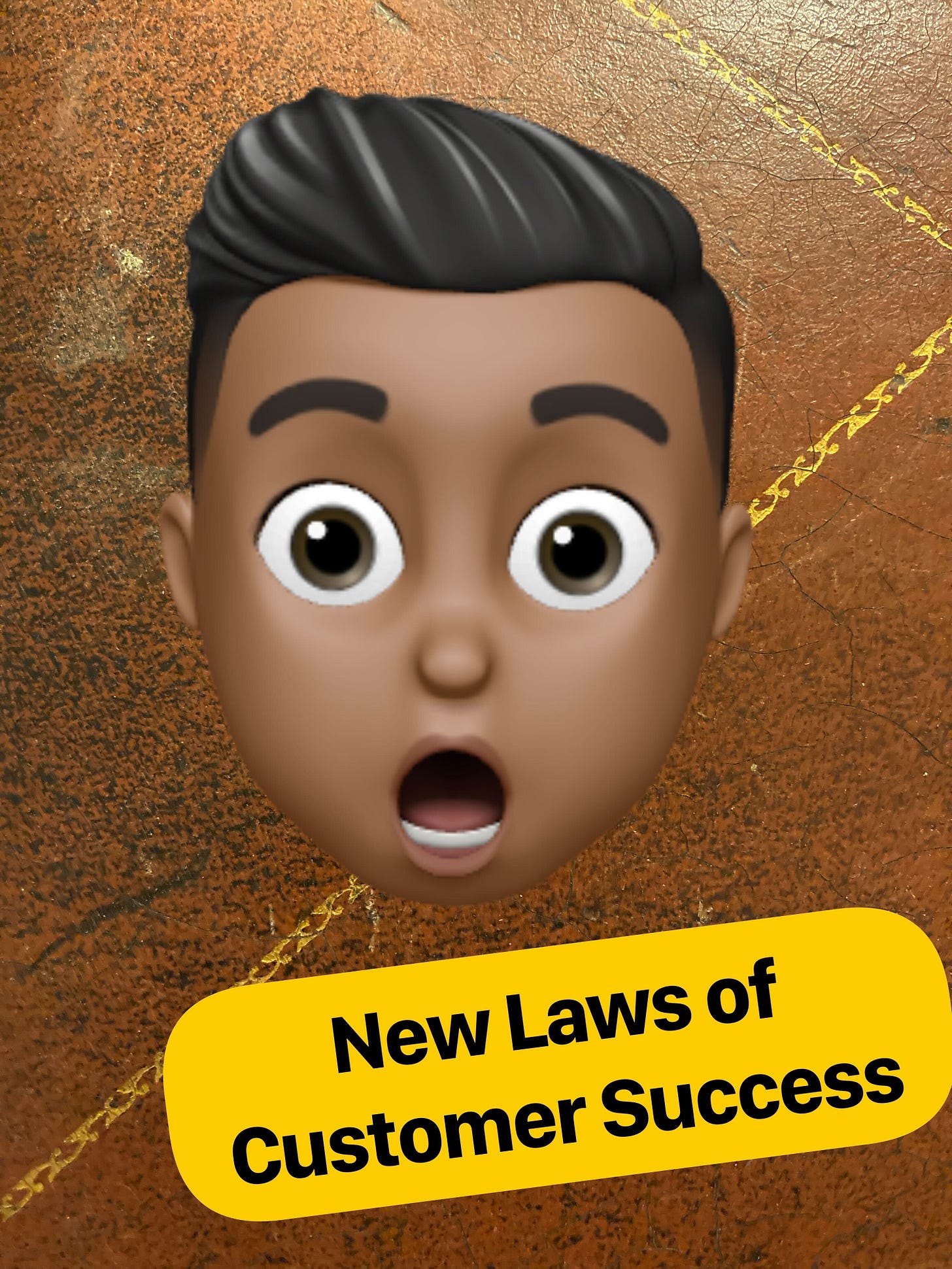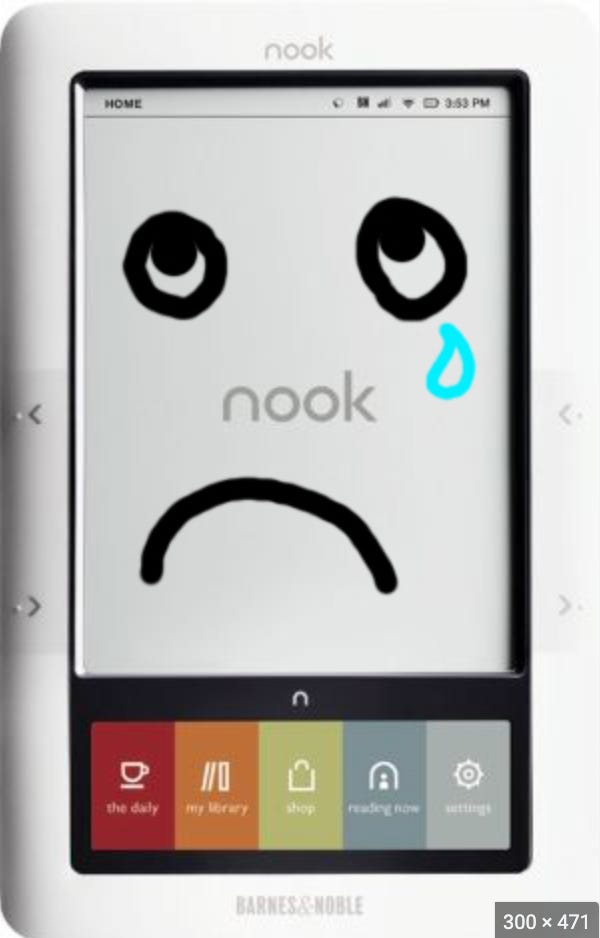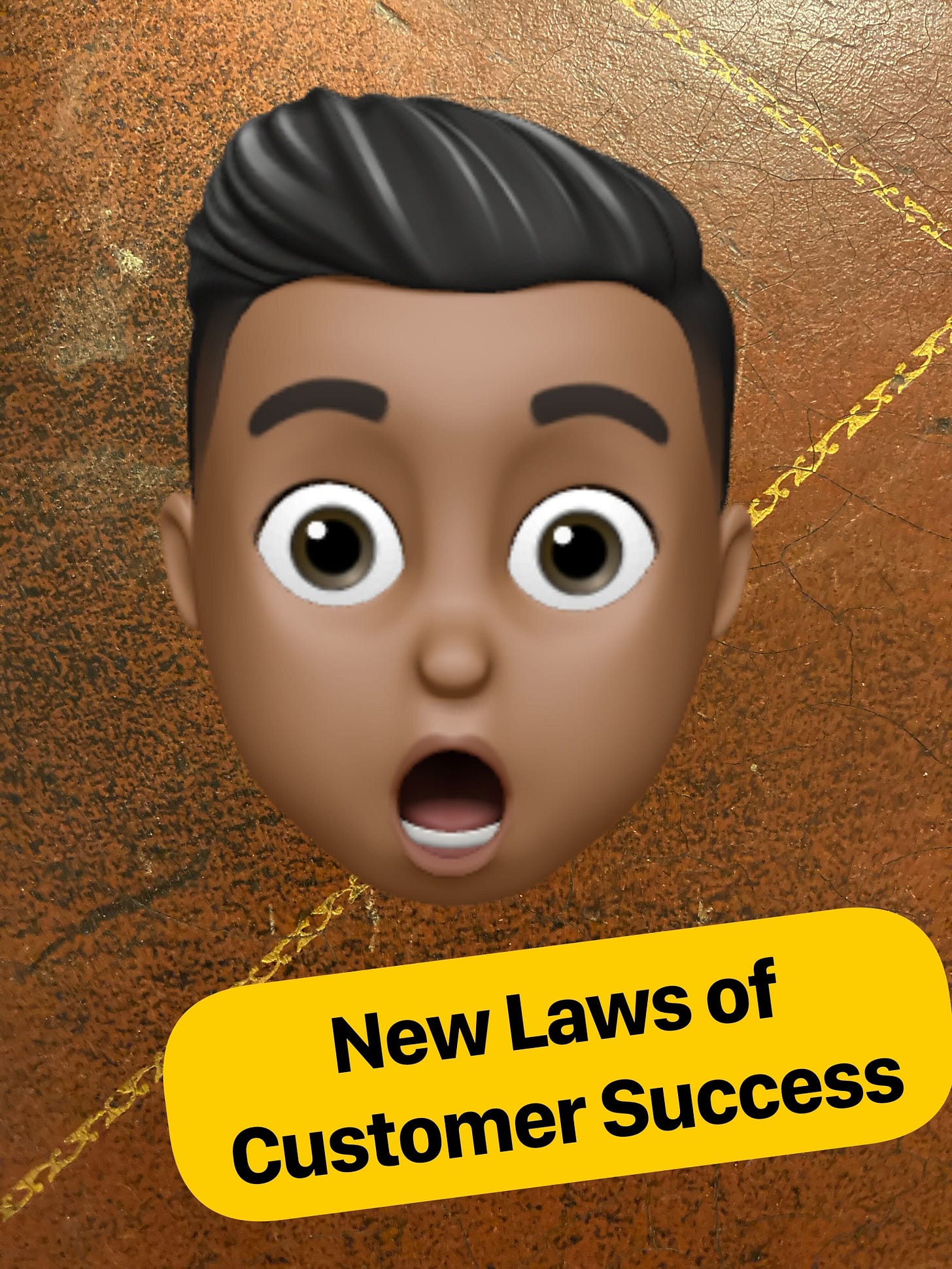Lessons for CSMs from Barnes & Noble
How to go from uninspiring to unforgettable: CSM lessons from Barnes & Noble's comeback playbook
Each week — we examine the greatest stories from entrepreneurs to psychologists —in order to hone our own executive communication skills and become unforgettable in less than 5 minutes a week.
Imagine waking up and everyone around you couldn’t hear, or see you.
Overnight… *poof* you turn into nothing. No one can hear what you are thinking or see who you are.
Some of my CSM friends say that's how their bosses treat them at work.
I can't stop wondering how that must feel.
I know the feeling all too well because, for years, my colleagues saw me as the "decorator." As a CSM, I wanted to be taken seriously, but my contributions were seen as "cute" and not credible.
But I didn't let that stop me. Instead, I hustled hard to build up my confidence and establish my influence with customers and coworkers beyond my CSM team.
And about a week ago, I talked to another CSM about my strategy for removing self-doubt and feeling insignificant with customers, coworkers and family.
And I told him a quick story about how Barnes & Noble used similar strategies to make a comeback. He f&$#&@ loved the story. I thought you would love it too.
I call it my “Barnes and Noble” method.
It's a combination of:
1) Barnes & Noble's turnaround approach
2) The frameworks I learned from their strategy to ensure you're always focusing on three levers that will transform any CSM from insignificant to influential.
So let's break it down and see how we can use these insights to level up our game and crush it at work (and in life, for that matter).
Sound good? Let's do this!
"Who the f&% goes to a bookstore anymore?" is probably what most people think of when they think of Barnes and Noble.
But — Barnes & Noble has a plan to open 30 stores in 2023 — making the bookseller the leader in what’s being called a “big-box revival.” (Media companies love to come up with these stupid phrases—who came up with "big box revival"?!)
Anyway, the new CEO said their plan to turn things around was focused on 3 things: 1) “Nothing happens until it happens at retail;” (2) “The General Manager is the Brand Manager.” 3) “Leveraging A Stellar Reputation.”
Nothing happens until it happens at retail (and what that means for you as a CSM)
The CEO knew that a website couldn't hold a candle to the in-store experience of being able to touch, feel, and chat with fellow book lovers.
And you know what? The former Barnes & Noble boss didn't get the memo and decided to pick a fight with Amazon anyway. He went all in on the Nook (anyone remember those?), and well, it was a total disaster.
But the new CEO? He had a different approach, and spoiler alert: it worked like a charm. So he decided to ditch the idea of trying to beat Amazon at its own game by creating a better website. I mean, that would be like challenging a heavyweight boxer to a sparring match when all you've got is a toothpick.
Just like the Barnes & Noble CEO, I've come to realize that when I'm not feeling my best to double down on my strengths, nothing else matters. It's like trying to drive a car with an empty gas tank — you're not going anywhere fast.
So, I've learned to pull the first lever and prioritize my health by forming small habits like getting enough sleep, moving around throughout the day, and hydrating like a boss.
And once I'm feeling like a million bucks, it's time to hone in on my strengths. That's right, baby! It's all about finding what you're good at and doubling down on it. After all, why waste time trying to fix your weaknesses when you can build on your strengths and become a force to be reckoned with?
So, take a page out of the Barnes & Noble CEO's playbook and remind yourself that nothing happens until it happens with a healthy body. Trust me, it's a winning formula.
The General Manager is the Brand Manager (and what that means for you as a CSM)
Hold on, it gets even better. The CEO put the power in the hands of the general manager of each Barnes and Noble, because they know the neighborhood, and that store better than anyone else.
They're like the mayor of that Barnes and Noble universe. And when it comes to doubting yourself or feeling insignificant, remember this second lever: you are the compass of the company. You know the customer better than anyone else, even those snooty product managers with their fancy whiteboards.
So go ahead, strut into that meeting and drop some customer knowledge because you are the one who knows the customer the best.
Your evidence, aka "customer interactions," is more is more convincing than what product managers write on whiteboards when they try to think of solutions that might help the end user.
Leveraging A Stellar Reputation (and what that means for you as a CSM)
When it comes to building a brand, you can't kick back and expect people to come running to your store like it's a Black Friday sale. Even if your reputation is off the charts, you still need to hustle and innovate to keep up with the big dogs.
That's exactly what this CEO did with Barnes & Noble.
Instead of relying solely on their stellar reputation, they took it as a challenge to up their game and create a personalized experience for each store. They took a page out of the local bookstore playbook and brought that small-town charm to the big leagues.
When you're feeling down and out, don't forget to pull this third lever:
Use your company's reputation to meet with other professionals.
Shorten the time it takes to turn a new customer into a customer that’s willing to give you a reference in the shortest time possible.
Spread and share these golden nuggets to your colleagues at work, hunt for smart friends, slide into those DMs, and ask your customers to be in a case study. Just a few handful of "hell yeahs" can change your entire life.
So the 3 levers to pull if you’re feeling doubtful, or feeling ignored at work, just like Barnes and Noble’s comeback strategy are:
First, focus on your health before anything else.
Second, remember you are the company's compass when working with customers.
Third, use your company's good rep to network with pros and turn customers into advocates.
That’s it for this week :)
I pour 80+ hours a week into crafting valuable content that hones your executive communication skills and makes you unforgettable in under 5 minutes. And I'm not just saying that because my mom thinks so.
So if you find this stuff useful, do me a solid and share it with someone who'd benefit from it. It's the ultimate compliment.
And if you know any customer-facing pros who'd dig this level of transparency, let's bring 'em into our tight-knit community one person at a time. Forward this article and other NLCS gems and let's keep the good vibes flowing.
Until next time, keep crushing it.











